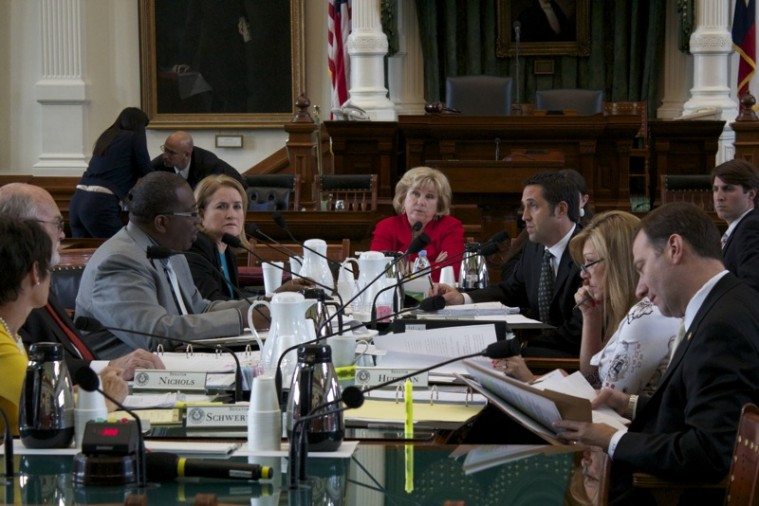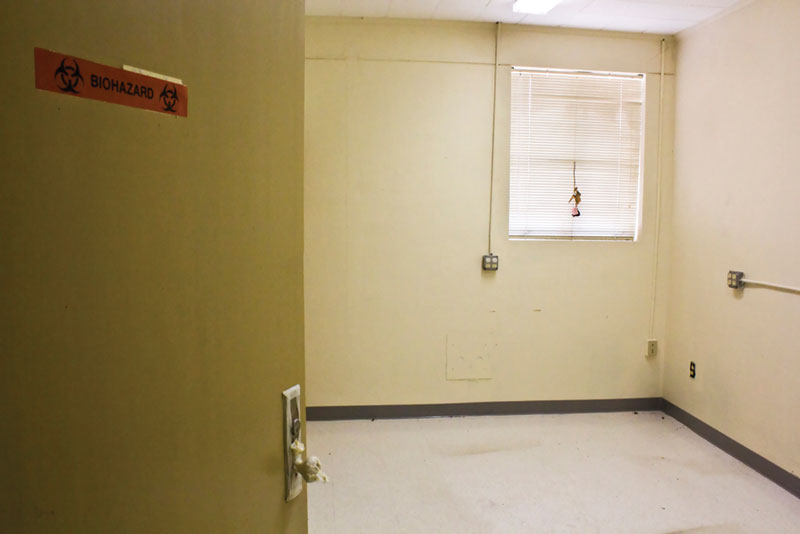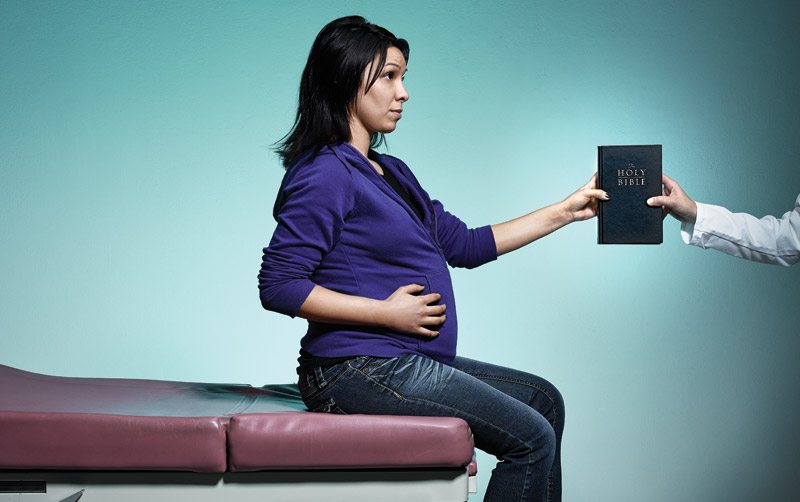
Perry’s Special Session: A Cruel Summer for Abortion Rights
Above: Abortion-rights activists turned up in vintage fashion, as a reminder that the Legislature's proposed regulations would be a throwback to 1950s law.
Abortion-rights activists thought it was too good to be true, and it was. Four strict anti-abortion bills that failed to pass in the 83rd Texas Legislature’s regular session that ended in May got new life on Tuesday when Gov. Rick Perry added abortion to the list of issues lawmakers can debate in a 30-day special session.
“We have an obligation to protect unborn children, and to hold those who peddle these abortions to standards that would minimize the death, disease and pain they cause,” Gov. Perry said in a statement on Tuesday. Within hours, an omnibus anti-abortion bill (Senate Bill 5 by Sen. Glenn Hegar) had been filed. A Senate committee held its first hearing on the bill yesterday.
Senate Bill 5 has teeth. It sets out to ban abortion after 20 weeks, making an exception only if the mother’s life is endangered or if the fetus has a “profound and irremediable anomaly.” The definition of an anomaly? One that a physician determines will cause the fetus to die within minutes or hours after birth regardless of medical treatment. Other provisions of SB 5 will require abortion clinics to be located within 30 miles of a hospital to which the abortion doctor has admitting privileges. Telemedicine gets the thumbs down too from a clause that requires patients to have two separate in-person exams with a physician for medical abortions. Finally, and perhaps most devastating, SB 5 requires all abortion facilities meet the minimum standards of ambulatory surgical care centers. Abortion-rights activists claim the requirements are unnecessary and a back-door way to close clinics.
On Thursday afternoon, the Senate Health and Human Services Committee met for almost four hours of public testimony in the over-air conditioned Senate chamber. Forty two people testified before the committee: 20 in favor of the bills and 22 against. Some opponents came dressed in 1950s getup–pillbox hats, white gloves and dainty shoes–to demonstrate that SB5 takes women back in time. The anti-abortion lobby–in power suits and with blow-dried hairdos–didn’t look too far from that era either.
Because the contents of the bills had been recycled from previous drafts in the regular session, the testimonies weren’t surprising.

Abortion-rights activists noted that fetal anomalies are frequently only detected 20 weeks into pregnancy, and that the painful decision to terminate should be the woman’s decision, not her physician’s. They argued that the surgical center requirements in SB 5 could force all but five clinics of the more than 40 in Texas to close, reducing access to safe legal abortion and driving women toward back-street abortions. Amy Hagstrom Miller, founder of Whole Woman’s Health abortion clinics, told the committee that requiring abortion clinics to become ambulatory care centers would increase their operating costs by roughly $40,000, with no demonstrable improvements in patient safety.
Alternatively, a speaker representing the Texas Catholic Conference of Bishops testified that SB 5 provides commonsense measures to protect women, arguing that the provisions would improve the standards of care. An African-American pastor from Dallas said that abortion is used as genocide in black communities. The chamber heard emotionally wrought stories from women who had refused to terminate pregnancies after hearing that their fetuses, some of whom later died, had congenital abnormalities. Self-described “pro-life” obstetricians told the committee of the countless patients they had seen who’d been harmed during abortion procedures.
The public hearing ended with a request from Elizabeth Graham, the leader of Texas Right to Life, that the committee remove a key exemption from the 20-week abortion ban. Fetuses with congenital abnormalities shouldn’t be aborted, she argued, because that punishes the “preborn” disabled. Committee members looked thoughtful as Chair Jane Nelson gaveled the committee into recess.
The committee meets again on Friday at 11 a.m. Not one abortion-rights activist I spoke to believes that SB 5 won’t pass.


